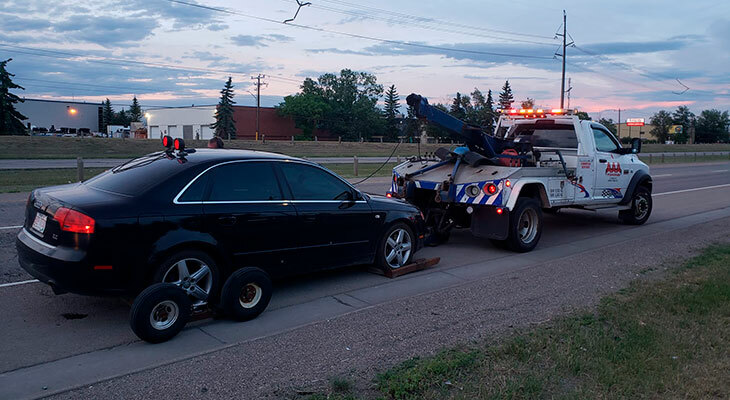How To Know If Your Car Needs To Be Towed Or Can Be Driven
April 11, 2025

When your car breaks down or starts acting up, it can be difficult to decide whether you should try to drive it to a repair shop or call for a tow. Many drivers in Calgary face this dilemma, especially when the issue seems minor at first.
However, misjudging the situation can lead to more extensive and costly damage, or worse, put you at risk on the road.
Understanding the difference between a minor issue that allows you to drive and a serious problem that requires towing is essential for protecting both your vehicle and your safety.
In this blog, we’ll walk you through the key signs that indicate when it’s safe to drive and when you need to call a towing company.
If your car is showing any of the following signs, it’s best to pull over and contact a professional towing company. Driving with these issues can lead to further mechanical damage, increased repair costs, and safety risks.
The engine is the heart of your vehicle. When it starts malfunctioning, driving further can cause severe damage:
Your transmission is responsible for shifting gears and ensuring smooth vehicle movement. If you experience any of the following, stop driving and call for a tow:
Towing a car with transmission problems improperly can make the situation worse. It’s essential to contact a professional towing service to prevent further damage.
Brakes are critical to vehicle safety. If they stop working properly, driving is not an option:
Without functioning brakes, it’s not safe to drive — even a short distance — and you should call for a tow.
A flat tire or damaged wheel can make driving difficult and unsafe:
If you don’t have the proper equipment to replace a tire or if the damage is more extensive, contact a towing company for assistance.
If you see fluid pooling under your car, it could be a sign of a major issue:
Fluid leaks are not something you should ignore — driving with a leak can lead to severe engine or transmission failure.
If you’ve been in a collision or accident, inspect the vehicle for structural damage:
According to CARFAX, structural damage can affect the safety of the car or truck, and related mechanical problems could surface prematurely.
Not every issue requires towing. If your vehicle shows only minor problems, it may still be safe to drive to a repair shop, but proceed with caution.
Not all warning lights mean you need to stop immediately:
However, if the check engine light starts flashing, pull over and call for a tow.
Driving too far with a low tire can lead to uneven tire wear and handling issues, so address it quickly.
Driving with a failing transmission or engine can cause irreversible damage.
Brakes or steering failures can lead to serious accidents.
Driving after an accident without a proper inspection could void insurance claims.
AAA Towing has been providing reliable towing and roadside assistance in Calgary and the surrounding areas for years. We specialize in light-duty and heavy-duty towing, vehicle recovery, and 24/7 emergency roadside assistance.
Our trained operators and modern fleet ensure that your vehicle is transported safely and securely. When you need professional towing services in Calgary, trust AAA Towing to get you back on the road quickly and safely.
For more information, contact us today.
We make sure each customer is completely satisfied before we leave the job.